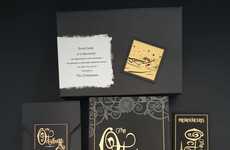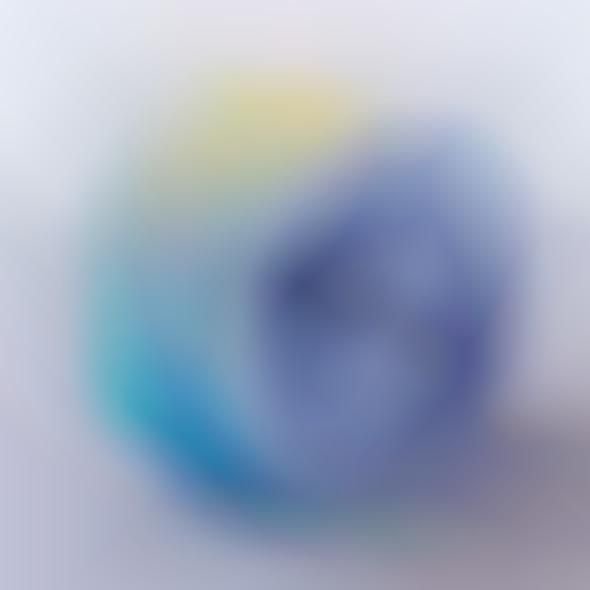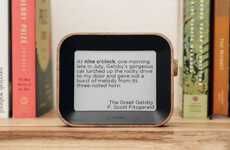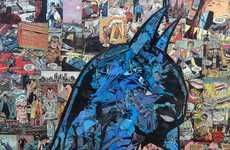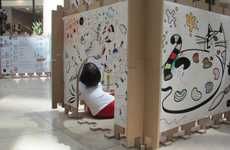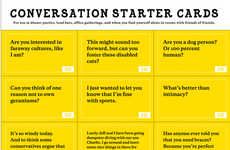
The 360 Book by Julie Mangeard Can Be Read from Any Point
Michael Hemsworth — March 27, 2013 — Art & Design
References: juliemangeard & getaddictedto
Although traditional pieces of literature are read from beginning to end, the 360 Book By Julie Mangeard doesn't contain a strict beginning, middle or end, which means it can be read from any point.
A concept in the way we read and interpret information, the 360 Book By Julie Mangeard is a social commentary on the way in which we get our information these days. Instead of simply reading cover to cover, we'll browse the internet and jump from link to link, only taking small tidbits of information with us. As such, Mangeard wanted to explore what it would be like if a tangible piece of literature were created in a similar fashion.
Is a book without structure too avant garde or a pragmatic approach to the evolution of our learning habits? The 360 Book By Julie Mangeard gives us plenty to think about.
A concept in the way we read and interpret information, the 360 Book By Julie Mangeard is a social commentary on the way in which we get our information these days. Instead of simply reading cover to cover, we'll browse the internet and jump from link to link, only taking small tidbits of information with us. As such, Mangeard wanted to explore what it would be like if a tangible piece of literature were created in a similar fashion.
Is a book without structure too avant garde or a pragmatic approach to the evolution of our learning habits? The 360 Book By Julie Mangeard gives us plenty to think about.
Trend Themes
1. Nonlinear Reading - The 360 Book by Julie Mangeard challenges traditional linear reading by allowing readers to start reading from any point.
2. Interactive Literature - The 360 Book by Julie Mangeard incorporates the concept of browsing and hyperlinking, creating an interactive reading experience.
3. Fragmented Information Consumption - The 360 Book by Julie Mangeard reflects the way we gather information online, where we often jump from link to link and only absorb small bits of information.
Industry Implications
1. Publishing - The publishing industry can explore new ways of presenting literature, such as nonlinear storytelling and interactive reading experiences.
2. Ebooks and Digital Content - The eBook industry can leverage the concept of nonlinear reading and create digital publications that allow readers to start reading from any point.
3. Education Technology - The education technology industry can incorporate the concept of fragmented information consumption into learning platforms to accommodate modern learning habits.
4.2
Score
Popularity
Activity
Freshness




